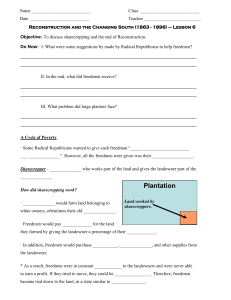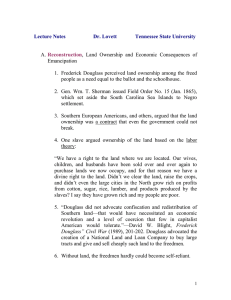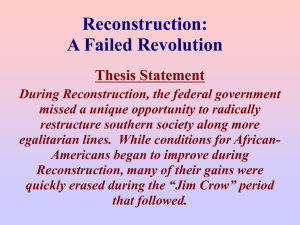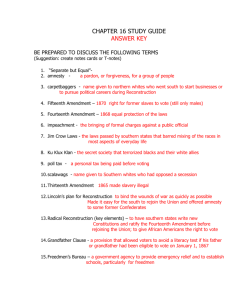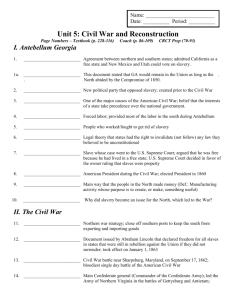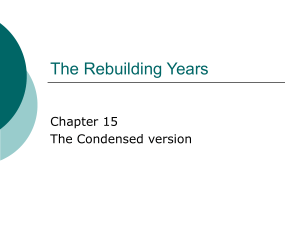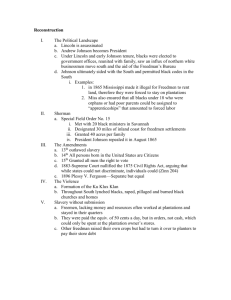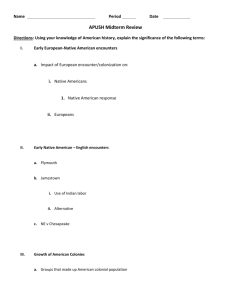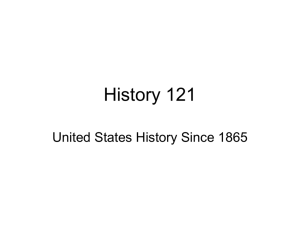As you read through this paragraph
advertisement
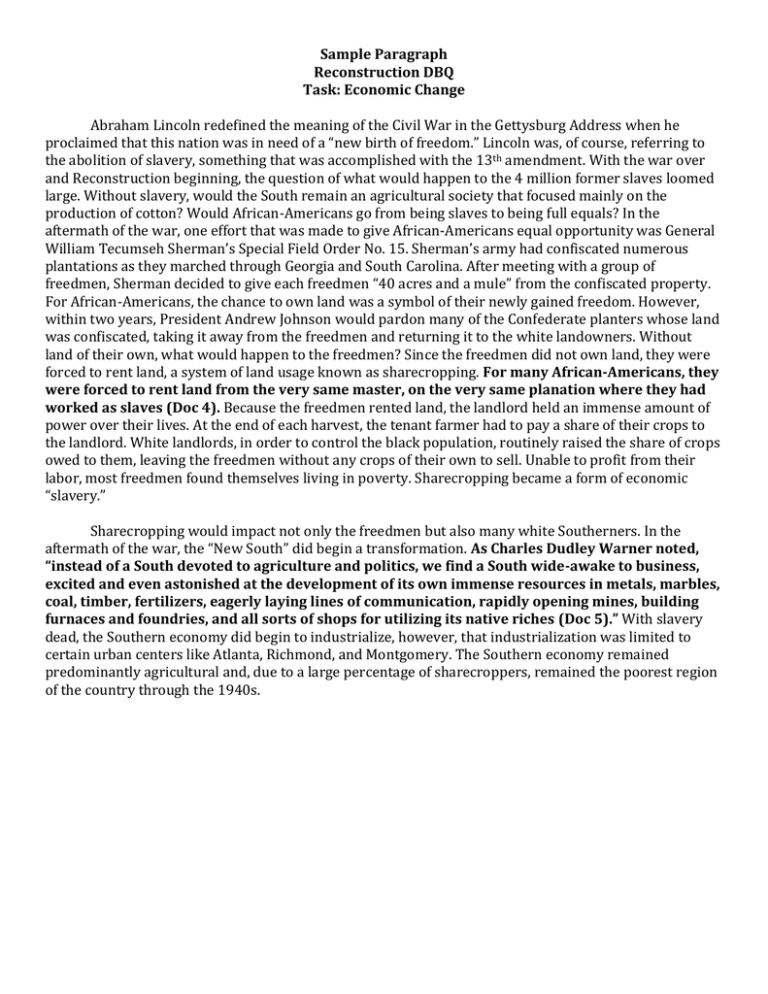
Sample Paragraph Reconstruction DBQ Task: Economic Change Abraham Lincoln redefined the meaning of the Civil War in the Gettysburg Address when he proclaimed that this nation was in need of a “new birth of freedom.” Lincoln was, of course, referring to the abolition of slavery, something that was accomplished with the 13th amendment. With the war over and Reconstruction beginning, the question of what would happen to the 4 million former slaves loomed large. Without slavery, would the South remain an agricultural society that focused mainly on the production of cotton? Would African-Americans go from being slaves to being full equals? In the aftermath of the war, one effort that was made to give African-Americans equal opportunity was General William Tecumseh Sherman’s Special Field Order No. 15. Sherman’s army had confiscated numerous plantations as they marched through Georgia and South Carolina. After meeting with a group of freedmen, Sherman decided to give each freedmen “40 acres and a mule” from the confiscated property. For African-Americans, the chance to own land was a symbol of their newly gained freedom. However, within two years, President Andrew Johnson would pardon many of the Confederate planters whose land was confiscated, taking it away from the freedmen and returning it to the white landowners. Without land of their own, what would happen to the freedmen? Since the freedmen did not own land, they were forced to rent land, a system of land usage known as sharecropping. For many African-Americans, they were forced to rent land from the very same master, on the very same planation where they had worked as slaves (Doc 4). Because the freedmen rented land, the landlord held an immense amount of power over their lives. At the end of each harvest, the tenant farmer had to pay a share of their crops to the landlord. White landlords, in order to control the black population, routinely raised the share of crops owed to them, leaving the freedmen without any crops of their own to sell. Unable to profit from their labor, most freedmen found themselves living in poverty. Sharecropping became a form of economic “slavery.” Sharecropping would impact not only the freedmen but also many white Southerners. In the aftermath of the war, the “New South” did begin a transformation. As Charles Dudley Warner noted, “instead of a South devoted to agriculture and politics, we find a South wide-awake to business, excited and even astonished at the development of its own immense resources in metals, marbles, coal, timber, fertilizers, eagerly laying lines of communication, rapidly opening mines, building furnaces and foundries, and all sorts of shops for utilizing its native riches (Doc 5).” With slavery dead, the Southern economy did begin to industrialize, however, that industrialization was limited to certain urban centers like Atlanta, Richmond, and Montgomery. The Southern economy remained predominantly agricultural and, due to a large percentage of sharecroppers, remained the poorest region of the country through the 1940s.
